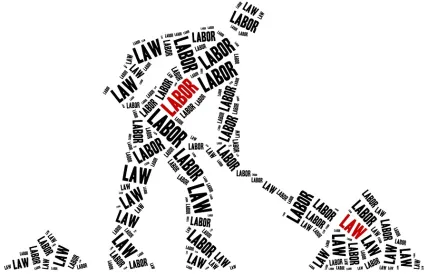Since dues are the lifeblood of all labor unions, it wouldn’t be surprising to find the leadership of the American labor movement singing a refrain from a 1960’s protest song: “my friend . . . we’re on the eve of destruction.”
As was widely expected, on Wednesday, June 27, 2018, the U.S. Supreme Court issued its long-anticipated decision in Janus v. American Federation of State County and Municipal EmployeesNo 16-1466. In outlawing mandatory “Agency Fees” for public sector unions, the Court has dealt a stunning blow to public sector unions. Agency fees are the portion of dues that a union can make workers pay in order to fund collective bargaining and other services a union must provide to everyone in the bargaining unit. The decision today continues a trend in the private sector, where 28 states have passed laws outlawing all forms of mandatory union dues known as Right to Work Laws.
The Janus decision reinforces a right guaranteed by the First Amendment of the U.S. Constitution, that people should be able to decide which organizations they want to join (and fund) and which they don’t.
The background for this decision is as follows: In 1977’s Abood v. Detroit Board of Education opinion, the Supreme Court upheld the constitutionality of a Michigan law that permitted mandatory agency fees for public sector workers — a monetary percentage of the union dues that members pay, designed to help a union recover the costs of the direct services it must give to all workers, including those who are not union members. Charging an agency fee allows a worker to choose not to be a union member and thus not have to pay for political and ideological projects of a union that the worker may not want to support. To avoid the problem of what unions call “freeloaders” (workers who receive the benefits of being represented by a union but pay nothing for it), 22 states have laws that require all bargaining unit members pay an agency fee.
In recent years, a number of public sector workers have sought to challenge the holding in Abood, in which the Court recognized that, in various but limited ways, governments have always been allowed to restrict the free speech rights of their employees. The Abood Court also determined that the only effective way in which labor relations operate is with one exclusive union for all workers, and resolved the problem of “freeloaders” by making workers pay just for the services they receive and not for any political activities with which they may disagree, which that Court considered a fair compromise.
Under constitutional law precedents, the freedom to join or not join a political organization is guaranteed by the First Amendment in that the act of joining or not joining a political organization is viewed as a form of speech. Also, recall that the free speech protections afforded by the Constitution apply only to public sector labor relations because the Constitution limits what the state/employer can and can’t do; in fact, the Constitution doesn’t apply to private sector employers, and therefore the Janus decision has no immediate impact on private sector mandatory union dues.
While the law is complicated, the facts in the Janus case are fairly simple: Mark Janus is an employee of the State of Illinois Department of Healthcare and Family Services, and employees of that agency are exclusively represented by the American Federation of State County and Municipal Employees (AFSCME), Council 31. Like most bargaining units, AFSCME is obligated by law to represent all workers in the bargaining unit, whether or not they choose to become full-fledged union members. Janus objected to paying even the agency fee and filed suit, but the case was dismissed by both the trial and appellate courts, each of which relied upon Abood as binding precedent.
Yesterday, in a 5-4 decision, the Supreme Court directly overruled Abood and held that forcing a non-consenting public sector employee to pay even an agency fee violates the First Amendment because it forces them to support ideas they may find objectionable. The majority rejected the idea that agency fees help buy labor peace. They also rejected the “freeloader” argument, noting that the freeloader problem should not restrict constitutional rights and that unions seem to survive in the 28 states that have outlawed mandatory agency fees. Finally, the Court accepted the argument that when it comes to public sector labor relations, you can’t avoid entanglements with politics when the issues impact the state budget, taxes, schools, and social welfare programs staffed by employees like Mark Janus.
Justice Kagan wrote a dissent in which she argued that the principle of stare decisis should apply, requiring the Court to affirm the principles in Abood that have survived for more than 40 years. The dissent argues that successful labor relations are not possible if the union is not the exclusive representative and cannot have an adequate source of funding. The dissent noted that prior case law has allowed state employers to regulate employees’ free speech in other ways, and this was just example of such regulation.
The Janus decision will have a profound effect on labor unions in the public sector. It will surely weaken their effectiveness, economically but also politically, as all public sector unions traditionally seek to influence government decisions and the election of candidates that are friendly to their positions. On a grander scale, for better or for worse, this decision will likely lead to a further decline in the percentage of the American workforce that is unionized. This is due to the fact that a union will have to think long and hard before embarking on what could be an expensive organizing campaign, knowing it may never recover its costs through future dues, which are no longer guaranteed.
While not directly applicable to private sector unions, along with the recent proliferation of Right-to-Work laws in traditional union states like Michigan, Wisconsin, and Indiana, union leaders everywhere must wonder if they truly are on the eve of destruction.




 />i
/>i

